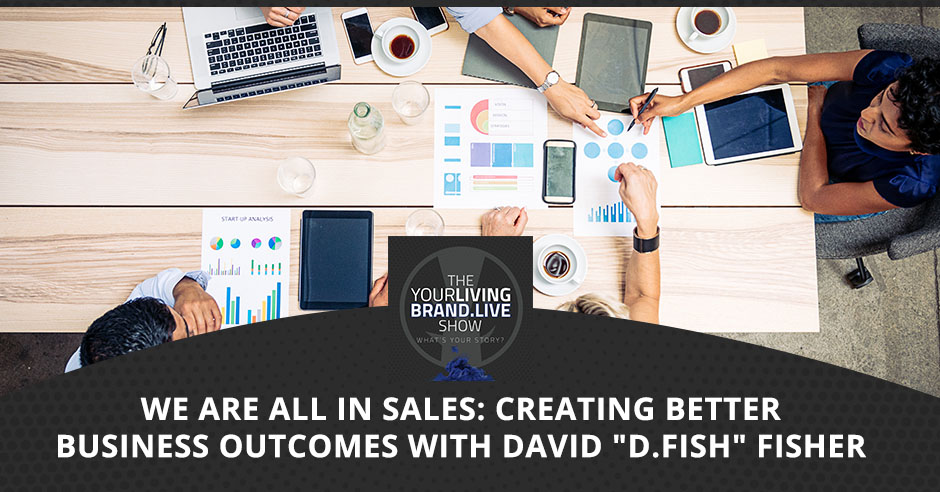
We all sell in one shape or form. Every day, whether we know it or not, we sell our ideas, beliefs, and products. Today, Ben Baker and his guest, David “D.Fish” Fisher, talk about sales, networking, and personal development versus professional development. David is a speaker, coach, Sales Hall of Fame inductee, and author of 12 books, including the best-selling Hyper-Connected Selling and Networking in the 21st Century: Why Your Network Sucks and What to Do About It. Tune in and discover how you can create better business outcomes.
—
Listen to the podcast here
We Are All In Sales: Creating Better Business Outcomes With David “D.Fish” Fisher
[00:01:19] In this episode, I’ve got another great title for a book for you. It’s Hyper-Connected Selling and Networking in the 21st Century: Why Your Network Sucks And What To Do About It. My guest is David D. Fisher, D. Fish. David is our Sales Hall of Fame inductee. We’re going to talk about sales and networking. We’re going to talk about personal development versus professional development. We’re going to sit here and figure out how to make people better at sales because we all sell in one shape or form. D. Fish, David Fish, welcome to the show.
[00:01:58] Thank you. You’re going through the challenge everybody has, “Do I call him David or D. Fish?” Just don’t call me late for happy hour and we’re good.
[00:02:08] You’re in Chicago and I’m out here on the West Coast. If I could pour you a drink now, I would do it. They haven’t figured out how to go that far yet.
[00:02:16] We’ll figure that one out with virtual conversation eventually.
[00:02:20] If Willy Wonka could do it, it’s got to be possible. Before we get started, you’ve been in sales for a long time now. We have both been in sales for a long time. Give me a little bit of the history of where you came from and what brought you to this place in time. There are different levels of salespeople. There are the people that are fresh meat, right out of the gun. There are people that have been here for twenty years. There are people who have made an entire career out of this thing and are jaded. There’s everything in between. Give me a little bit of history that brought you to this point and got you out of carrying the bag, and now teaching people how to carry the bag?
[00:03:03] The long story made short was I did get my start in sales before I even graduated from school. Some of your audience probably have already tuned out a little bit going, “I don’t want to be a salesperson. Sales is such a four-letter word.” We all do it. Dan Pink has a wonderful book, To Sell is Human. I got my start carrying a bag. I was a Cutco sales rep. Many of your readers probably know of the salespeople, usually college students who are paying their way through school. That’s how I paid my way through Northwestern.
After that, I ran their Chicago office for five years. That was my transition from being a salesperson to trying to learn the craft, the science, and the art of selling because I was trying to teach people. We trained over 1,500 salespeople. We did a lot of coaching and development. That’s the way that I evolved into running my own business. I started RockStar Consulting many years ago. It still is sales coaching, training, development and business, where I got to do a little bit of everything. We do group training, keynotes, marketing, and sales consulting. I get to write books and run a podcast.
When you run your own business, you're also selling your ability to help people sell. Share on XMy goal is to help sell people on themselves and their own potential and abilities. I get a chance to do that in a lot of different formats. What’s great is even though I help people sell, when you run your own business, you’re also selling your ability to help people sell. I don’t think I’ve ever put down the bag in the last couple of decades,
[00:04:38] The bag could have gotten a little nicer over the last years, but there’s still a bag. I’ve owned my own business for fifteen years, ten years before that with a partner. You’re always selling. I don’t care if you work for yourself or somebody else, if you’re a “salesperson,” or you’re trying to sell your manager, vice president, or be able to get your idea across in the meeting, you’re always selling. We’re all always selling.
We need to get rid of the phrase that sales is evil. Sales is evil when people don’t understand what they’re doing, and they do it poorly. That’s where the crux of the matter is because God knows there are a lot of bad salespeople out there. We laugh at the used car salesman. We laugh at people of that ilk. A lot of it comes down to bad training. It’s not bad people. It’s either lack of training or no training at all.
[00:05:37] That’s exactly right, and often a misunderstanding of what selling really is. There’s always the old adage which I believe, “You don’t sell to somebody, you sell for somebody.” It’s the idea of helping people, especially you mentioned those young people right out of school in that first sales job. They don’t have the right training. What happens way too often is the sales manager or the trainer is going to pressure people in, “You got to hit your quota. You got to do this and that.” It’s a bad road to go down that many people don’t know a better way of doing it. A lot of the work over my career is, in some small way, shape or form, helping people escape that to sell for people as opposed to them.
[00:06:19] I still remember my first professional sales job. It was working for a company that sold, they weren’t encyclopedias, but they were two-volume educational books set, door to door. It was interesting. It was based out of Nashville, Tennessee. I can’t remember the name of the company. I’m sure they’re defunct, but you were not allowed to sell in your own territory. I had to drive across the country and find a place within a territory that they told me. Six of us lived in a two-bedroom apartment. We drive down for a week of sales training in Nashville, drive back up, grab our bag, and out we go.
The one thing I remember is it was the days of Glengarry Glen Ross, Always Be Closing. They talk to you about seventeen different closes, the trial close, this close, that close. To this day, when I get somebody that tries to do all that to me, I’m writing them down on a bingo sheet. At the end of the sales, I’ll send it to them. I go, “Bingo.” They look at me. You sit there and go, “It’s not their fault because that’s the way they’ve been trained.”
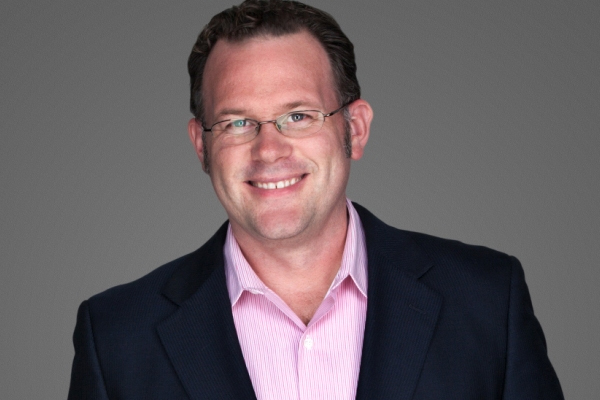
That’s the way that their system has grown up with that. It’s an us versus them. They have money. We want their money. We want them to buy at whatever cost because we’re probably never going to see these people ever again. We have one shot. If we don’t close them, welcome to my days at Xerox. You have one shot to close them. If you don’t close them that day, they’re going to buy something else.
[00:07:55] That works in a world that we had many years ago. That was very transactional and short-term. With the one-call close model, many years ago, it was very common that this was going to be the only interaction you were going to have with that person. I got one shot. If I don’t close you now, you’re going to go with the competitor. You’re not going to buy it from me. Your bad behavior is not going to follow you around.
Nobody else is going to know that you were pressuring the customer and made them feel uncomfortable. That’s not the world we live in anymore. There’s a lot of the “turmoil” or whatever you want to call it in sales. A lot of sales arguments are on LinkedIn. It’s this changing of the guard. I don’t think sales is harder or easier than it was. It’s just different, and it’s a different world. There are still some people who want to cling to that old-school transactional model. It’s not the world we live in anymore.
[00:08:46] Let’s face it. Take me for an example. I’m in my early 50s. I started many years ago in sales. If that’s all I ever knew growing up, and all of a sudden I became the salesman to the sales manager, to the district sales manager, to the director of sales, to the VP of sales, that’s how I’m going to expect the people that come after me to sell, “I always did it this way. This is how I always did it.” Therefore, my team should sell that way. I’m going to build my commissions based on that. I’m going to build my expectations. I’m going to build my following based on that. I’m going to build everything for my sales team based on that Glengarry Glen Ross, Always Be Closing model. That worked well many years ago because that’s how people bought and sold. They didn’t know any better.
However, with the changing of the guard, with the next generation, with a much smarter and much more educated procurement people, and people that work in companies because of the internet, social media, and other far more products at their disposal, that same technique doesn’t work as well. How do we help organizations that are stuck with a director of sales, VP of sales, someone who is that old skill person, who’s always thought and worked this way, help them redevelop their teams so they can understand, “First of all, this doesn’t work anymore? Second of all, let me show you a better way,” because there are better ways. We can talk about that as well.
[00:10:22] This is the un-sexy answer because it isn’t the easy one. It’s helping leaders understand that the world has changed. You’ve touched on something important, which is if you are in a leadership position in an organization, there’s a very good chance that you use that progression there. I started selling in 1997 when we only had the phone. Email does not exist. Social media and the worldwide web were basically there. I got my Star Pilot. You hit the phone. This was pre caller ID. Everybody picked up their phone. They didn’t know if it was something they wanted to talk to or not.
The power of modern selling now is the fact that we have a lot of communication channels. Share on XThe world has changed. They don’t have to have all the answers, but they have to get to a place of humility where they are, “The world is different.” I can’t react to it and go, “These young kids on their TikToks, Instabooks, and whatever, that’s BS.” We have to at least be open to the very real ways that we communicate differently. Once there’s that opening, you can then start to fill in the new way of selling or engaging. It comes down to understanding that we connect and engage differently because of the multitude of channels we have.
There are many kinds of modern sellers who do a disservice to their organizations by trying to say things like, “Cold calling is dead. You can’t do this or that.” The power of modern selling now is the fact that we have a lot of communication channels. We have the phone. There are times to pick up the phone. I love video calls that we now have, LinkedIn, email, and dropping something in the mail. The empty inbox is our mailbox. It’s mailing stuff to people. I would disagree with something you said where you’re like, “Our buyers are more educated and they’re smarter.” They’re not.
[00:12:22] They have access to more information, but they’re as confused as they always have been.
[00:12:27] One of the things I talk about in Hyper-Connected Selling is the concept I call the Sales Sherpa. One of the ways we think about how we have to change as sellers are that sellers are no longer in charge of the sales process. I don’t know if we ever were, but in the transactional days, it was nice because we could think, “I’m going to pick up the phone. I’m going to talk to somebody. I’m going to get something done right then,” versus now, we have to position ourselves as sellers, as a resource, and as a trusted advisor for the people that are going to buy from us, and also realize that they’re going to buy from us when they’re ready. That might be now, but it’s probably not going to be. We can use all the channels available to us to position ourselves as the person who can help the buyer cut through the information, chaos and noise. Just because they have information doesn’t mean they know how to use it.
[00:13:18] Data is just data. It’s just 1s and 0s. That’s all it is.
[00:13:22] I talked about insights a lot with sellers. An insight is helping the buyer to use information. The example I often use is theoretically, we can all buy a house without a real estate agent. We often thought that real estate agents would go away. This is the early days of the internet because everything is online now. There are more real estate agents now than there ever have been even though you have a lot of online tools. The markets in the United States in the last couple of years have been crazy. Just because you have a listing for a house, you don’t know what the school district is like. You don’t know that if a house listing says it’s a quaint and near transportation, it’s tiny and next to the highway.
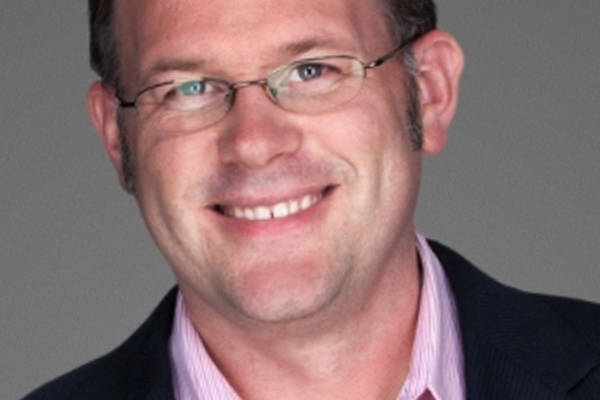
[00:14:05] I understand that the background speaks.
[00:14:08] You can go, “Tell me what you’re looking for. Show me the listings. You don’t want that.” In Sales Sherpa, the goal is to help your buyer make a decision more easily, quickly and with less risk.
[00:14:19] It’s interesting what you said because I know somebody who is a real estate sales agent. Years ago, they created a 70-page PDF. That’s on their website for free, about how to buy and sell a house step by step. He says, “Usually, people say, ‘I’ve gotten to page 35. Can you help me?'” Just because you give people a hammer doesn’t mean they can build a house. That’s what we need to realize as salespeople. Our job is to help facilitate this, to be that easy button, to be able to explain, take the difficult and the complex and make it simple, and build that know, like and trust to enable people to sit there and say, “If they’ve done this, what else can they do for us?”
[00:15:13] There’s something you referenced in the conversation. The skills that enable that are different from the skills that help somebody be a hard-charging one-call closer in 1992. I don’t think this is about it being easier or harder than it used to be, but it’s different. It’s knowing, “I have to build that know, like and trust.” It’s not going to be just in one conversation. It’s going to be over time. A lot of successful salespeople always used to do this. It’s becoming more and more important where they have a bit of marketer in them.
My writing career started more about networking, not sales. Even though I had a sales background, I was looking at networking because for me, networking is this convergence of selling and marketing. It’s personal marketing. Even when I do a lot with LinkedIn and digital, for me, that’s an extension. It’s just another channel to do this networking and this relationship building.
You have to have a marketer’s thought process as a salesperson where it’s like, “I’m going to build this relationship with you. I’m going to plant some seeds. I’m going to cultivate those over time. I will be generous. I will tell you everything you need to know about this. At a certain point, you’re probably going to be over. If you can buy it without me, great, but you’re probably going to get overwhelmed. If you have a question, I’m here for you.” It’s like a personal trainer. We don’t need to be told how to do a push-up. A lot of times, we need help making sure we’re going to do it and we’re doing it right, and whatever it is.
The channels might be changing, but the foundational interaction or engagement stays the same. It's still human to human. Share on XThere’s a whole industry, and if you think about it, in many ways, they’re just people that are there to help facilitate our own physical exercise in that case. We are seeing a shift where you could get away with not being a good marketer in the past as a salesperson because you’re like, “I’m going to hustle and hustle.” You don’t have to have both. It makes it a lot harder. It’s going to continue to get harder moving forward.
[00:17:50] I want to combine that thought with something you said about networking. I want to talk about 2019 versus 2022. In 2019, I was flying around the world. I was giving keynotes. I was going to conferences. I was delivering workshops and all those wonderful stuff. You would come off the stage, and there would be twenty people there who want to talk to you. Maybe 2 or 3 of those turned into deals. You went to a conference, it’s the same thing. You got to meet people, shake hands, have lunch, have coffee, build those relationships, do that networking face-to-face, see people belly-to-belly and eye-to-eye, and be able to have those quiet conversations in the corner. COVID changed all that.
The people you walked into their offices and were able to sit down with them and have a conversation with may not have been in the office for the last few years, and they’re not coming back. If they’re coming back, they’re coming back two days a week. You don’t know which days of the week they are in. When they’re in the office, they are chock-a-block full. They don’t have time for you to drop in.
You’re looking at a situation where you’re going, “I don’t have the ability to be face-to-face with people anymore. If I don’t have somebody’s cell phone, so I can call them at home, or if they haven’t taken their office number and forward it to a home number, it’s a lot more difficult for me to use the channels and the skillset that I’ve built up over God knows how many years to be able to do my craft.”
How do you take those people that have been sitting there going, “This digital world is scary and different? People think differently. Things happen at a different timeline. I can’t get ahold of people. People are ghosting me,” all the things that you’re hearing, and be able to help them be resilient, creative and adaptable, and bridge that shifts to be able to understand how they can use the digital world to their advantage.
[00:19:45] The biggest thing to realize, especially if somebody is struggling with that transition, is that the channels might be changing, but the foundational interaction or engagement stays the same. What I mean by that is it’s still human to human. We’re still having a conversation, whether that’s over a Zoom video call or at the table at the cocktail reception at a conference. The first thing is to remember that if you know how to have a conversation, you can port that into different channels. A big part of this is it’s exposing some of the weaknesses a lot of us had. For example, we thought we were good networkers because we could go to the conference, shake a bunch of hands, see those three people we knew, and maybe get a couple of business cards, but no real business was coming from that. It felt good.
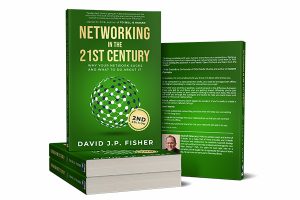
[00:20:35] You got a couple of free drinks out of it and a couple of days out of the office.
[00:20:40] We felt busy but weren’t productive. I’ll use myself as an example. I built my business strictly through networking. I did a lot of networking over the last fifteen years. The pandemic didn’t throw a wrench in my networking at all. The reason why is because I was already doing a lot of Zoom calls and phone calls. I was already national, if not international, in my networking. I couldn’t just go down to an event. For me, it was easier because I was like, “Now I can’t go to that event. I’m going to reach out to Ben and be like, ‘Let’s grab a Zoom call.'”
The first thing for anybody who’s struggling, and this is probably the hardest, is to accept that it’s not going to go back to the way it was. Even years later, there are still so many people who are like, “It’s eventually going to get back.” There are even a lot of people who are like, “We want to return to the office because we know what that’s like.” I don’t know the future at all. I don’t prognosticate especially on a recording because I’ll have evidence of how wrong I am.
[00:21:42] This could live many years from now, so who knows?
[00:21:46] It’s never going to go back to “the way it was.” It’s not because of the pandemic. The pandemic accelerated something that was already happening, whether it’s remote work or digital communication. When I talk to sales teams at LinkedIn, I’m like, “LinkedIn and Zoom aren’t new tools. Nobody had to invent something in March 2020. We already have it. We just haven’t used it or needed to use it.” It’s accepting that I’ve got to put all of these tools into place because it’s not going to go back to where I can just drop by the office.
Even if somebody is going back to the office as far as their prospects or customers, they’re not going back probably every day, or some of them are. They’re going back on Mondays and Wednesdays, and that’s not the time they want to use to meet you. When you make that mental leap, a lot of things fall into place because you’re not fighting it.
Patience, kindness, and compassion create better business outcomes. Share on XYou can start to think to yourself, “What do I need to replace? I need to replace going to a conference and meeting new people. What are other ways that I can meet new people? Is it getting involved in virtual events? Is it going to the in-person events, which are still going to happen?” It would be much. In some ways, it’s better because you can be like, “This is the one event I’m going to this year.”
[00:23:09] They’re going to be smaller events, more concentrated, and very much more focused.
[00:23:15] I’m going to make sure that I do the outreach beforehand. I don’t just sit there and talk to the same two people I always talk to every year. I’m going to get out there. It makes us get past those bad habits you might have developed. The way I’ve built my network for years now is I go to very few events to meet new people. I talked to people that I know and say, “Who else should I meet?” I want to have some new conversations or something like using LinkedIn. We didn’t say this, but how do we know each other?
[00:23:50] We met through LinkedIn.
[00:23:52] I don’t remember if you liked one of my pieces of content or I liked one of yours, and we started a conversation. We realized that we had sort of outlooks. You were like, “Can we grab a conversation over Zoom?” Awesome. We have a lot of connections in common both as far as outlook, but also some people that we know like Catherine Morgan. I love Catherine. She’s here in Chicago. We’re doing business together. We’re creating collaborative content and we’ve never been in the same room.
[00:24:39] Here’s a question. There are Zoom calls, phone calls, connecting with LinkedIn, and being able to respond back and forth. The challenge that I’m hearing over and over again from people is the asynchronous challenges of social media. Here’s a perfect example. I have somebody that I know who’s in Australia. He’s been on my show. He’s extremely busy. He’s got 3 or 4 things going on. We talked about something a few weeks ago. He’s finally getting back to me.
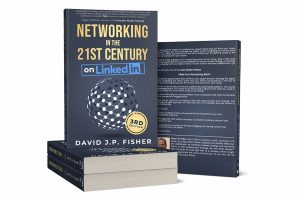
After several weeks, you’re going, “First of all, what did we talk about?” Second of all, you feel like, “Did this person ghost me? Are they even interested? Is there any connection back and forth?” The more channels that we’re on, the easier that is for people to do that because they go, “Do I respond to them on LinkedIn or do they like Twitter? Do they like to be texted or emailed?”
It is to be able to understand what is the preferred version of communication of that particular person to be able to make sure that you keep top of mind, but it’s that asynchronous thing that says, “I send a message,” and it could be days or weeks depending on the person before you hear any response back whatsoever. That is where the real challenge is in terms of building relationships and networking.
[00:26:04] That goes back to the idea where it’s a mindset issue as much as it is a skillset or a toolset issue. A lot of times, people go, “What is the magic sauce that will make sure I’m never ghosted or that someone is going to respond to me right away?” We think there’s this hack or something that, “There’s this right voicemail I’m going to set up,” whatever it is.
[00:26:24] If you put a $100 bill into an envelope in the mail with your business card attached to it, that’s probably a good chance.
[00:26:32] Maybe, because there are people, especially in the sales game now, that are like, “We’ll give you a drone if you accept a demo with us.” That doesn’t mean anything. To your question, the first thing is to change your mindset and go, “Things are not going to happen in my timeframe. They’re going to happen on their timeframe.” That’s what I’m saying, especially if you are in a true sales role, a business owner, or a solopreneur and you’re trying to get business.
People aren’t going to jump right away just because you’re reaching out. They’re on their timeframe. You have to accept that a little bit. Is there language that you can use to try to move things along? Absolutely. You made a great point of being cognizant of what channel people want to respond to and what they prefer. Sometimes that’s as easy as asking early in a relationship, “By the way, what’s the best way of getting in touch with you?” I’ve usually found that however you start engaging with them, it’s a good one to keep following.
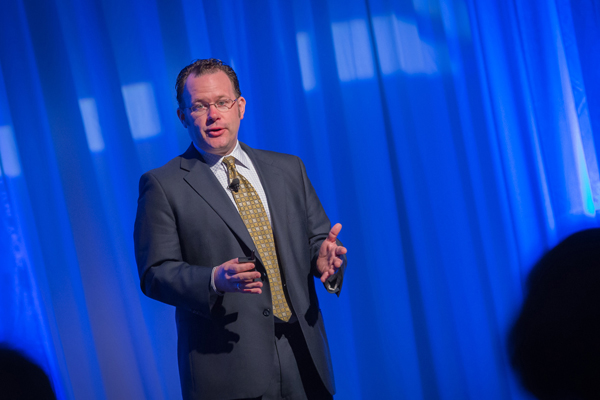
If you leave me a voicemail or call me, I don’t pick up my phone unless there’s a name on it because I know you. If you send me a LinkedIn message, I’m not on there all the time, but I’m on there every day, and I will get it. You have to have the right expectations. I don’t think this is driven by the fractured communication landscape we’re in, but it has been highlighted by it, which is we’re all busy. Maybe in some ways, not only on the professional level, but especially after the last couple of years, and the personal level. You never know.
I learned this very early in my sales career. You never know what’s going on with the person on the other side of the phone. Even a sales manager taught me this early on if somebody is mean to you on the phone. This was when we were dialing for dollars. He’s like, “You never know why they were mean to you. You never know what their day was. If they’re mean to you, just be grateful you’re not married to them. That was your only interaction with them.”
It’s the same thing here. We don’t want to be ghosted. We want somebody to get back to us right away, but you never know what’s going on in their life. We had our second child. That’s a priority. Your email is not. It’s not that I don’t want to engage you in whatever way, shape or form if somebody reaches out, but I’m like, “My response horizon has gone down a bit.” You never know. I had somebody who said, “I’m sorry I didn’t get back to you. My parent passed away because of COVID.” I’m like, “Okay.” It’s way more important than any business I was trying to get done. That can be hard when we want to get things to it. We have to be a little more aware of the world we’re in now.
[00:29:07] On my CRM now, I’ve built a user field that says, “Preferred method of communication.” I’m sitting there going, “I’ve got hundreds if not thousands of people in my CRM. I can’t remember who likes, texts, tweets, LinkedIn or whatever.” The majority of people that I deal with like LinkedIn. It’s probably a default, but I always check if it’s somebody I haven’t dealt with on a regular basis. They go, “They like text.” Fine. Five minutes later, done. If I had sent that person on LinkedIn or an email, it could have been days before I saw or heard anything back from them.
[00:29:44] If the reader is not as organized as you are when in doubt, reach out to somebody through one channel. If you don’t hear back the next day, try a different one. The key is not, “Why didn’t you get back to me on my LinkedIn message?” It’s something that I learned early on. It has worked well for me. People have different opinions on this. Every email to somebody is always framed as if it’s the first one out. Even if I’ve been sending you messages for three months, it’s never, “Did you not get this? I move this to the top of your inbox.” It’s always like, “This is the first time.” You never know. You’re telling somebody, “I’m trying to make you feel bad because you didn’t respond to me.”
[00:30:20] It’s a good way to get ghosted.
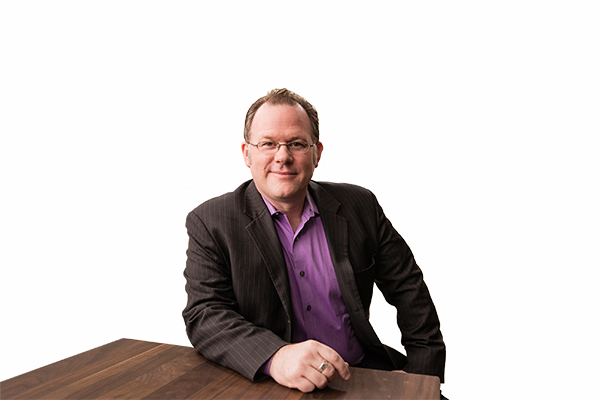
[00:30:24] I love the idea of tracking that. Try some other channels. We are in a fragmented world for sure.
[00:30:29] There are two questions, and I’m going to let you go. This has been phenomenal, but we’re getting close on time. There are two sales guys in a room, and we could talk forever. The first question I want to ask you is if you could give somebody one piece of advice that isn’t in sales and is working within a company, what’s one piece of advice to make them be understood, listened to and valued more effectively? What would it be?
[00:30:58] Kindness. It’s not about being nice. There’s even in the old school about know, like and trust. You’ll be like, “It doesn’t matter if they like you.” Being a good person, a nice person, and an easy to get along with person costs you nothing. It drives so much success. Have some patience and kindness. Especially after the last couple of years, have some compassion for people, even when they’re driving us nuts when they, “Why haven’t you gotten back to my message right away?” It creates better business outcomes and it’s a better way of going through the world.
[00:31:37] What’s the best way for people to get in touch with you?
[00:31:40] Find me on LinkedIn, Linkedin.com/in/IamDFish. You can find me online at DavidJPFisher.com. We do have a landing page as well for all of your readers, so you can get a bunch of free resources on networking sales and how you get more people to respond to you right away.
[00:32:08] Here’s the last question. It’s a question I ask everybody as they walk out the door. When you leave a meeting, you get in your car, and you drive away, what’s the one thing you want people to think about you when you’re not in the room?
[00:32:20] “That was a worthwhile use of my time. I am at a better place because I spent a few minutes with D than if I had not.” You might have an insight that you didn’t have before, where I made you feel better about yourself and about life than you did before. That’s all I want people to think, “My life is a little better for having spent that time with D than if not.” Everything else will take care of itself.
[00:32:44] I can honestly say that my life is better off with the time that we’ve gotten together. D. Fish, whatever you want to be called, I promise I won’t call you late for drinks. We got to have that pizza in Chicago. Thank you for being a wonderful guest, and thank you for all your wisdom.
[00:33:00] Thanks so much for having me. I’m looking forward to that slice with you.
Important Links
- Hyper-Connected Selling
- Networking in the 21st Century: Why Your Network Sucks And What To Do About It
- To Sell is Human
- LinkedIn – David Fisher
- David Fisher
- YouTube – David J.P. Fisher (D. Fish) Digital Speaking Reel
- Twitter – David Fisher
- YouTube – David Fisher
- Amazon – David Fisher
- https://YouTu.be/lbdxfmPJDgk
About David J.P. Fisher
 David J.P. Fisher (also known as D. Fish) is a speaker, coach, and author of 12 books, including the best-selling Hyper-Connected Selling and Networking in the 21st Century: Why Your Network Sucks and What to Do About It. He is a Sales Hall of Fame inductee and LinkedIn Influencer and collaborator. Building on 20 years of experience as an entrepreneur and sales professional, he combines nuanced strategy and real-world tactics to help professionals become more effective, efficient, and happy.
David J.P. Fisher (also known as D. Fish) is a speaker, coach, and author of 12 books, including the best-selling Hyper-Connected Selling and Networking in the 21st Century: Why Your Network Sucks and What to Do About It. He is a Sales Hall of Fame inductee and LinkedIn Influencer and collaborator. Building on 20 years of experience as an entrepreneur and sales professional, he combines nuanced strategy and real-world tactics to help professionals become more effective, efficient, and happy.
David’s goal is to help them understand the new Sales Sherpa™ Path, where social media, networking, and old-school sales and communication skills are the key to providing value and staying relevant. He lived next door to a huge cemetery for years – which helps him appreciate the value of every day.


